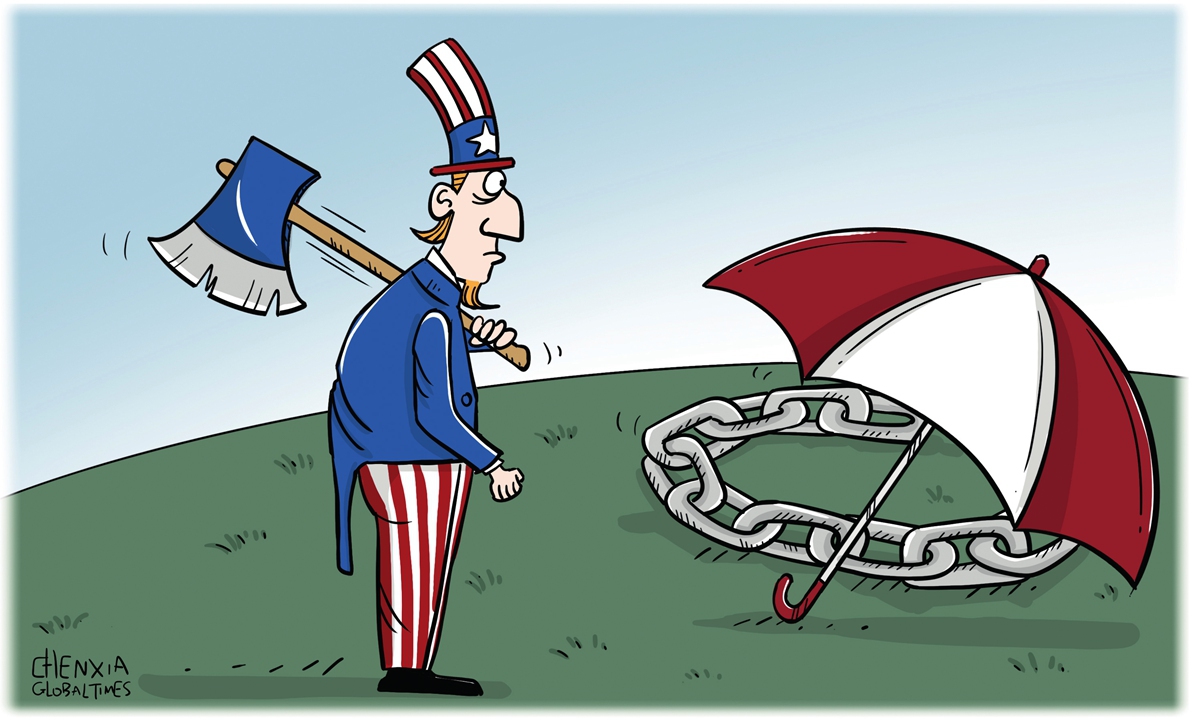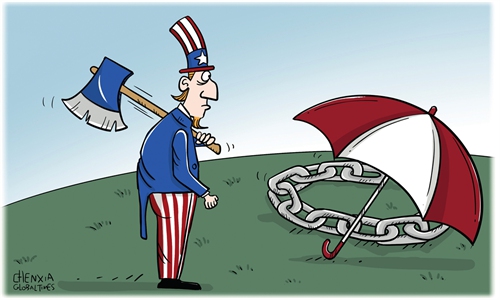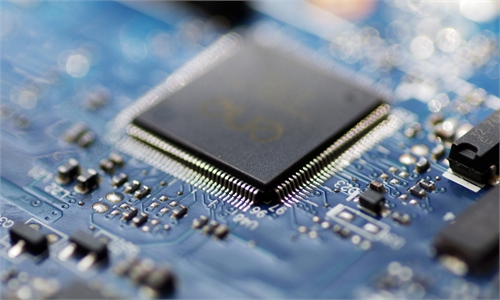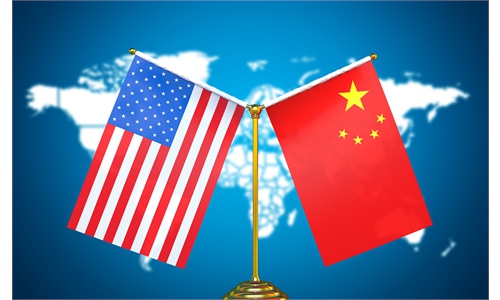
Illustration: Chen Xia/GT
In regard to Washington's latest announcement of "the most aggressive" export controls, US' Semiconductor Industry Association issued a statement, which began with the understanding on the "goal of ensuring national security," and then laid stress on mitigating "unintended harm to US innovation." This statement is an extremely euphemistic expression of concern about the latest control measures on the premise of carefully ensuring "political correctness."Such attitude is now very representative among US companies. As Washington's crackdown on China has escalated step by step, becoming almost hysterical, the US business community, which has suffered from "unexpected disasters," seems to have fallen into a collective silence, becoming "choked with silent fury." Against this backdrop, even the statement by the US' Semiconductor Industry Association appears to be "commendable." It shows that normal voices of the US business community have in fact been suppressed by Washington's political pressure and distorted public opinion against China.
In the more than 40 years after the normalization of China-US relations, the US business community has always been a pivotal presence, and has been a main force in supporting and promoting the development of pragmatic and mutually beneficial cooperation between the two countries beyond ideological divergences, and has served as an indispensable counterweight to Washington's political and diplomatic tendency. As a result, US companies have become the direct beneficiaries of the sound and stable development of China-US ties. According to the report of the American Chamber of Commerce in China, despite the tension between China and the US, in 2021, still about 58 percent of US companies operating in China saw their revenue grow, and 66 percent companies plan to increase investment in China in 2022. The pragmatic attitude of the US business community should have been the best dose of sobriety for Washington's anti-China fever.
Regrettably, during this round of political crackdown on China provoked by Washington, the voices of the business community in the US have been very weak, and they haven't played a positive role as expected. The intimidation on them and accusations that "they were speaking for China" have seriously squeezed the space for them to express their opinions and demands normally, which to some extent reflects the overall regression of US' rationality toward China.
On one hand, we have seen that some people in the US business community continue to speak out. For example, the American Chamber of Commerce in China firmly opposes a complete decoupling between China and the US, supports the expansion of tariff exemptions on Chinese goods. When the Trump administration wanted to impose additional tariffs on Chinese goods, many US companies also clearly voiced opposition. However, due to various reasons, these relatively dispersed opinions failed to converge into forming a strong enough political influence. They are basically ignored by Washington, and most of the related hearings have become a mere formality.
On the other hand, it is true that many American companies are becoming more and more silent, and a few short-sighted enterprises even voluntarily asked the US government to "get tough" on China. The "political correctness" concocted and promoted by Washington is creating an increasingly strong chilling effect in the US business community. Few people ask, ponder over, and criticize the absurd logic behind this, as well as the reckless irrationality. Everything has been taken for granted.
We often say that "the decline of the US" is the decline of hegemony, and is more the decline of thoughts. The current aggressive China policy of the US largely stems from its cognitive bias toward China, the world and itself. Be it provoking comprehensive confrontation, or clamoring for strategic competition, they all deviate from the correct track of China-US relations. Against this background, absurd and ridiculous thing are inevitably arising with farces emerging one after another.
In recent days, Pentagon resumed F-35 fighter deliveries, putting an end to a farce triggered by a metal component. Just because of a Chinese-origin alloy, the US political circle called for "reflection," and Pentagon clamored for "investigation." After repeated investigation, Pentagon had to admit that the magnet does not transmit information and there are no security risks involved. It's another fight the "anti-China" force in the US lost to common sense, which reminds people of Don Quixote who fought against the windmills.
When Washington continued to escalate its suppression against China under the pretext of reviving its own semiconductor industry, instead of acquiring benefit, the US semiconductor industry had a nightmarish experience as some US high-tech companies' share prices nearly halved. In the long run, Washington's extreme export control toward China will be difficult to sustain because of the backlash against itself. We hope that such facts will wake up Washington from frenzy toward China and become calm and rational.



